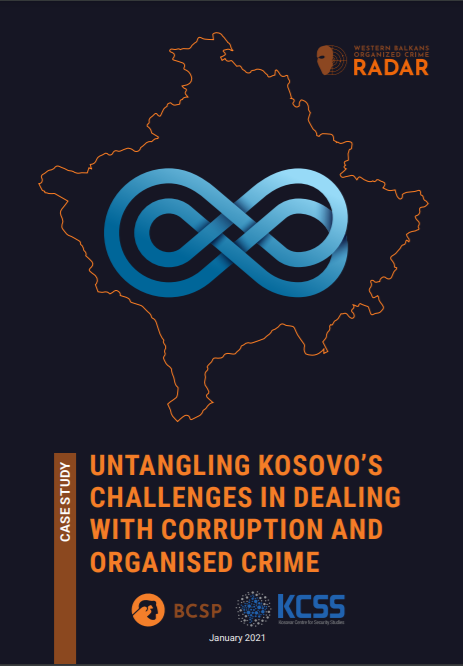22/01/2021

Kosovar Centre for Security Studies (KCSS) and Belgrade Center for Security Policy (BCSP)
Royal Norwegian Embassy in Belgrade and Balkan Trust for Democracy
Dr Ramadan Ilazi, Teuta Avdimetaj, Mentor Vrajolli
The EU’s role has been crucial in ensuring that the Western Balkans takes significant steps in the right direction following the end of the war of 1999, and supported state-building/ transformation efforts as well as democratic transition. However, amidst the growing influence of the far-right populism, especially towards the enlargement policy, the region’s progress is hindered by domestic factors as well as challenges to a cohesive EU policy vis-à-vis the region. A weakened European enlargement perspective is likely to exacerbate bilateral disputes, embolden corrupt elites and undermine the civil society.
Corruption and organised crime are the key challenges the region must overcome if it wishes to build democratic resilience through the rule of law. This paper provides a brief overview of the challenges that Kosovo faces in dealing with corruption and organised crime in an effective manner. These are considered quintessential issues in moving the country forward in achieving the aspiration for Euro-Atlantic integration. Drawing from the existing research, as well as primary sources, such as interviews with rule of law officials and the civil society, this paper provides the context of the spread and impact of corruption and organised crime in Kosovo’s institutions and economy. Its purpose is to inform the reader of the existing state of play and discuss the way forward in dealing with these challenges by focusing on strengthening the institutions of the rule of law. It argues that meaningful transformation of the fight against corruption and organised crime requires the ability of institutions to assume full ownership of the process, and that they be accountable to their own public, as well as the EU, in the framework of fulfilment of requirements in the accession process.
The first section of this paper summarises the key issues with respect to the challenge of corruption in Kosovo. It brings together different sources that have written on the subject and considers the consequences for Kosovo, especially for its economy and the democratic functioning of its public institutions. In the same spirit, the second section investigates the challenge of organised crime in greater detail, focusing particularly on understanding the nature of organised crime and its impact on institutions and the economy. It shows that political patronage has become a lifeline for organised crime, and that weak law enforcement thus serves the interest of the elite and organised crime networks. The third section provides a brief discussion of how to move forward, focusing on the rule of law. The main recommendation from this section is to decuple the judiciary from political patronage through a vetting process and allow for a meaningful local ownership to run the process.
Opinions expressed in the publication do not necessary represent those of the Royal Norwegian Embassy in Belgrade, the Balkan Trust for Democracy, the German Marshall Fund of the United States, or its partners.